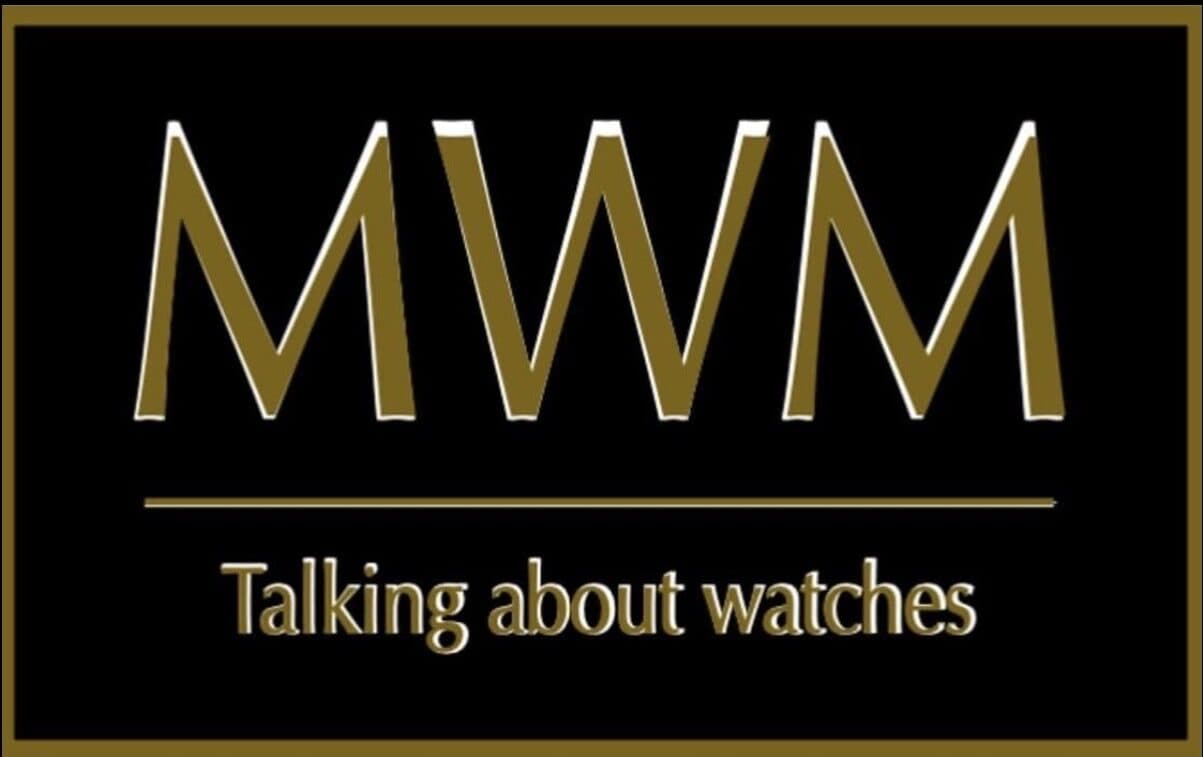The horological industry gathered together on the 26th April at the Museum of Timekeeping, Upton Hall, home of the British Horological Institute (BHI).
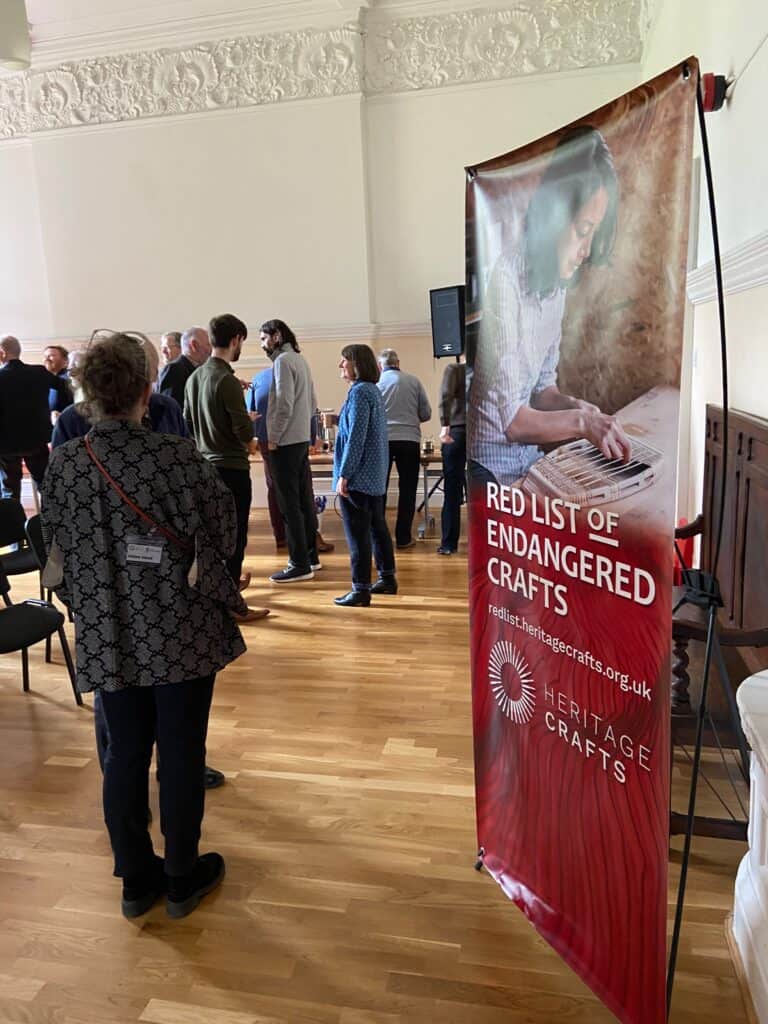
The Symposium on Horology was hosted by Heritage Crafts and was organised to hear from leading experts to ensure a resilient future for watch and clock makers, and related horological crafts. Both watch and clockmaking are listed as endangered on the Red List of Endangered Crafts but it also made the audience aware that there is need for additional research and data on this complex and diverse sector. The event was arranged to discuss how we can improve and promote opportunities for upcoming watch and clockmakers and ensure that skills and knowledge are passed on to the next generation.
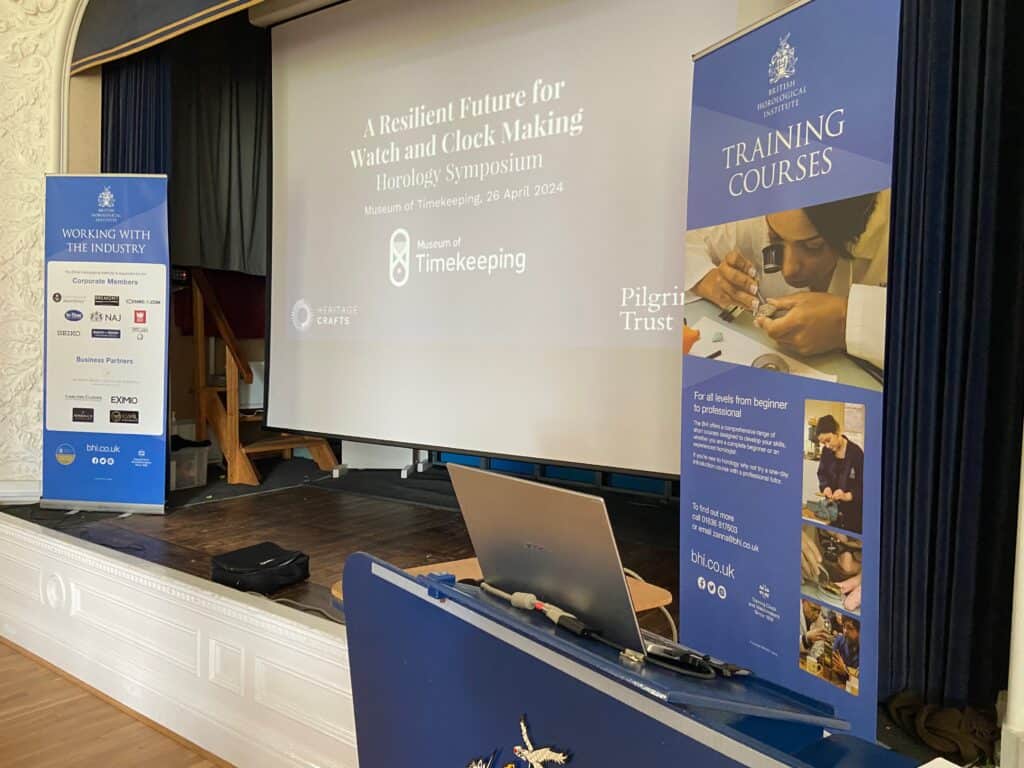
The day began with an introduction from Dr Rob Finnigan from the Museum of Timekeeping who talked about the Dawning of the Dial. This was followed by Mary Lewis, Head of Craft Sustainability at Heritage Crafts Association (below) whose presentation was titled, Against the Sands of Time: Assessing the Pulse of Horology. It outlined the facts about clock and watchmaking being endangered crafts and need for more data on the subject from those involved in horological craft.
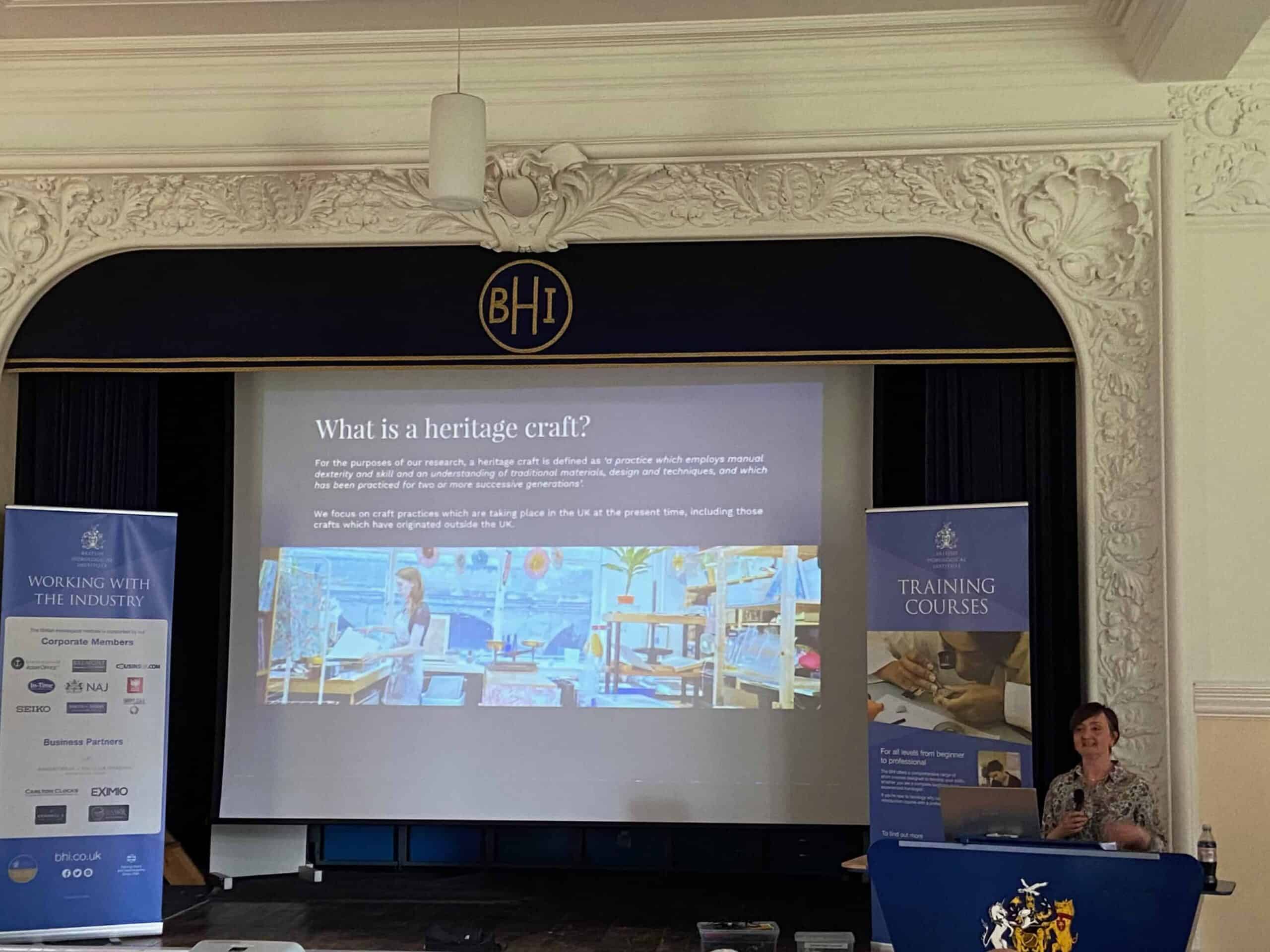
Next we heard from Justin Koullapis FBHI from the Museum of Timekeeping (below), who talked about the need to recognise the commercial imperatives behind watch and clockmaking, whilst not losing the art and craft with his presentation titled, Crafting Time: the Convergence of Heritage and Commerce in Horology. He went on to say that we should not directly compete with the Swiss watchmaking industry, but to develop our own ’British’ way of crafting timepieces. This encourage some interesting debate and discussion from the audience.
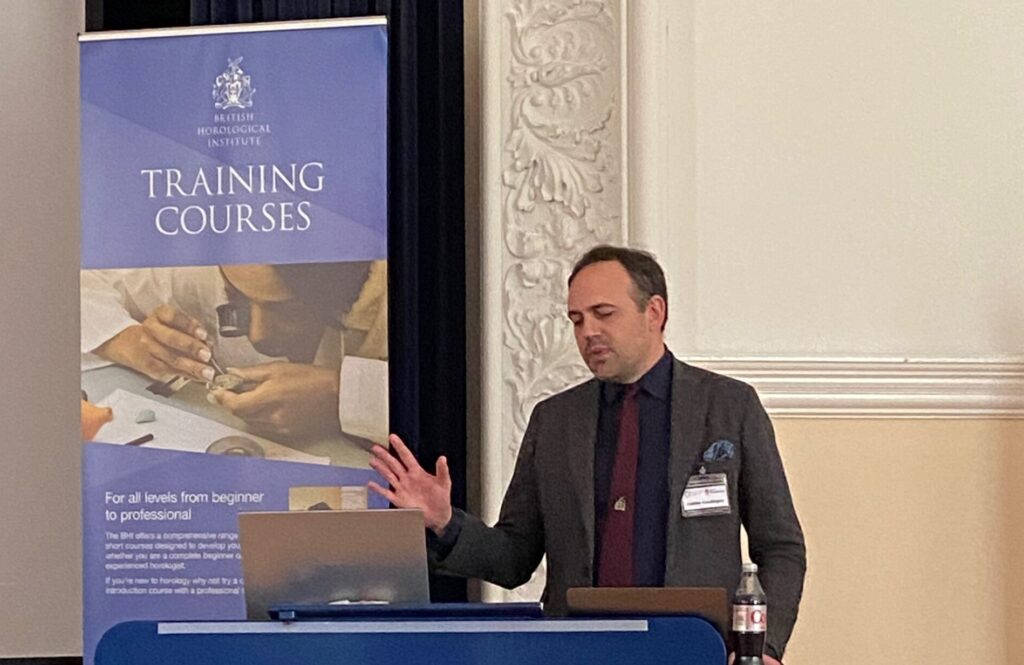
After the break we heard from Alan Burtoft FBHI, President of the BHI. His presentation was titled ‘Time’s Vanguard’ and he talked about the BHI’s Educational Blueprint now and going forward saying that they have had to restructure their courses mainly due to the lack of funding from the Government. There were several observations from the audience stating the need for additional courses aimed at Continuous Professional Development (CPD), which started an interesting debate.
Following this we heard from Andrew Canter, Editor-In-Chief of MrWatchMaster and Court Assistant, Outreach & Learning Coordinator at the Worshipful Company of Clockmakers on how the Company were Gearing Up for the Future: Mastering Watch and Clockmaking Through Apprenticeships and Training. Andrew stated that the Company’s primary objective was to ‘inspire the next generation of clock and watchmakers’ through their expanding Outreach & Learning programme. During the presentation, we heard the firsthand experiences from Robert Taylor, an Apprentice the company supports financially and through the mentoring scheme.
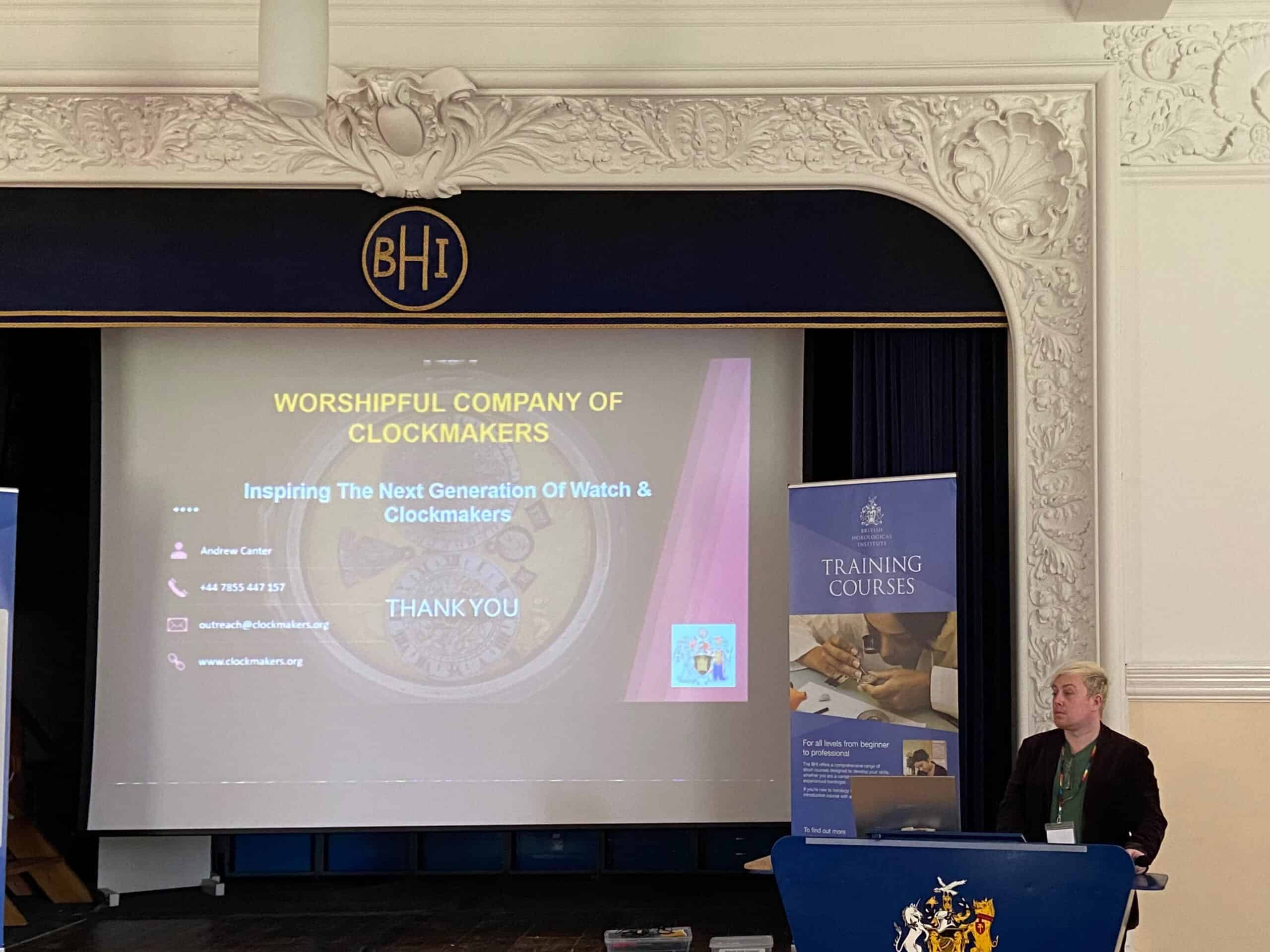
After the lunch break, there was a panel discussion titled, Ticking Towards Tomorrow: An Urgent Dialogue on the Preservation of with Lewis Heath, Founder and Managing Director of anOrdain, Malcolm Archer, Horology Subject Leader at West Dean College, Mathew Porton, Horology Course Director at Birmingham City University and Andrew Canter, Editor-In-Chief of MrWatchMaster and Outreach & Learning Coordinator at the Worshipful Company of Clockmakers.
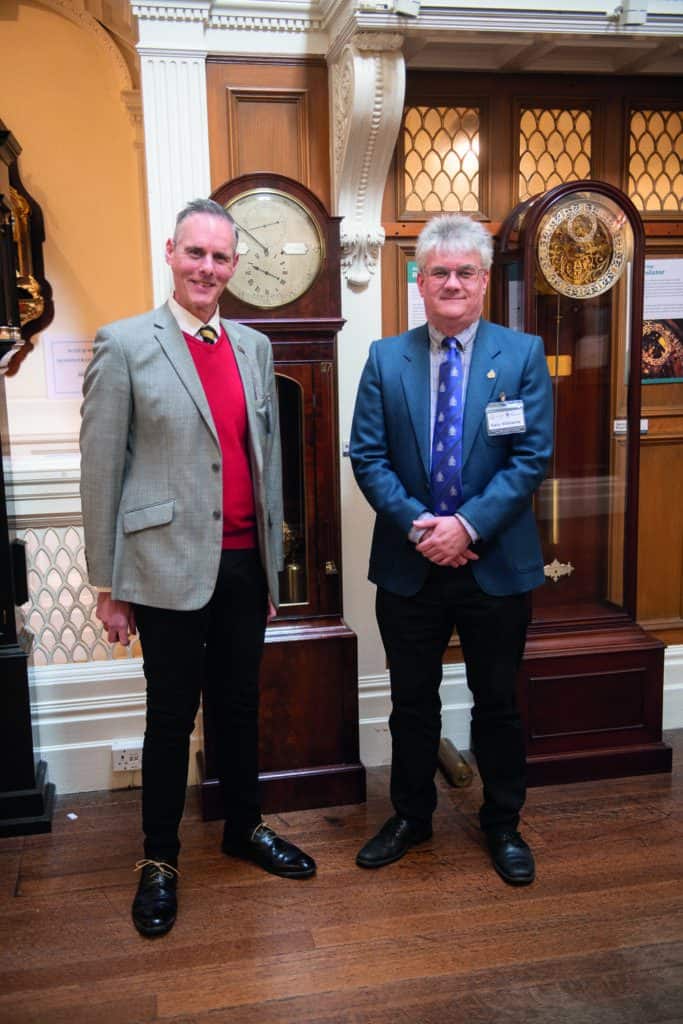
Image courtesy of the BHI and the Museum of Timekeeping
The discussion was framed around the questions below, starting with The Definition of Horology: How do we currently define horology in a way that honors its tradition yet embraces modernity, and why is this definition critical for the craft’s survival?
Cataloging Horological Skills: In what ways can we systematically identify and preserve the unique skills of horology to maintain relevance and transfer knowledge effectively?
Industry Statistics and Trends: What do the latest statistics tell us about the number of practicing horologists compared to historical figures, and what can we infer from this data?
Apprenticeships and New Talent: How can we revitalise interest in horology apprenticeships among the youth, and what creative strategies could be implemented to attract and retain new talent?
Educational Reform: What innovative educational approaches should the British Horological Institute consider making horology a desirable and modern career path?
Implementing the ‘Timekeepers Renaissance’: What are the immediate actionable steps we must take to ensure the ‘Timekeepers Renaissance’ moves from a concept to a tangible reality in revitalising the craft?
The panelists shared their views and expanded on the issues raised from the questions. The audience were encouraged to offer their thoughts and suggestions in finding the answers to the challenges that we all face to ensure a resilient future for watch and clockmaking.
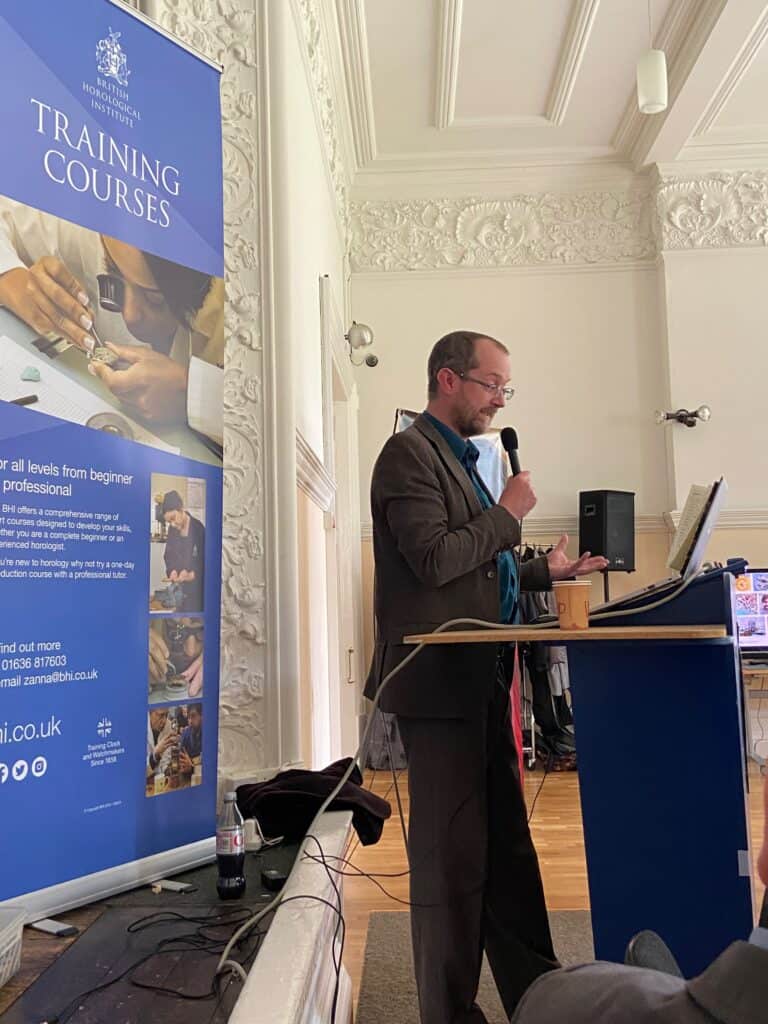
The day was summed up by Daniel Carpenter, Executive Director of Heritage Crafts (above) who said that we had covered an extensive range of topics and had lots of positives to take forward. Of course there are still many challenges for the horological industry, but the general feeling was that there are some exciting opportunities ahead which we can all benefit from if we work collaboratively to achieve them.
